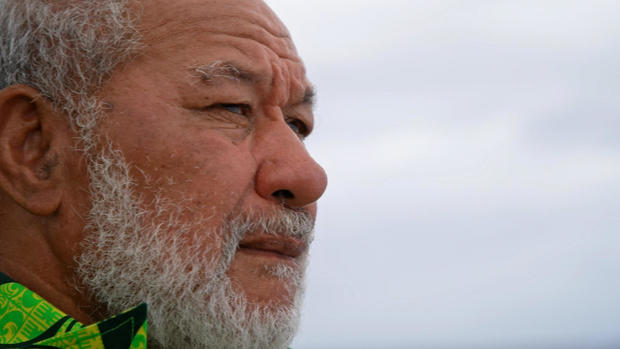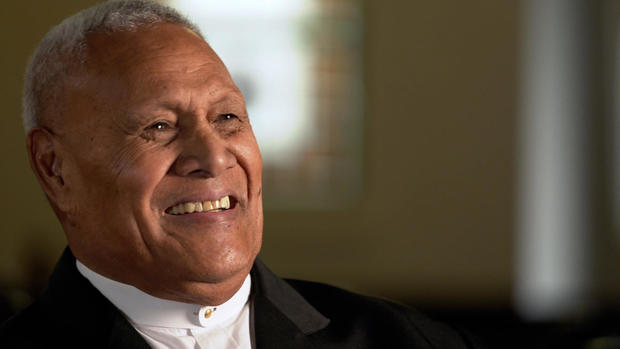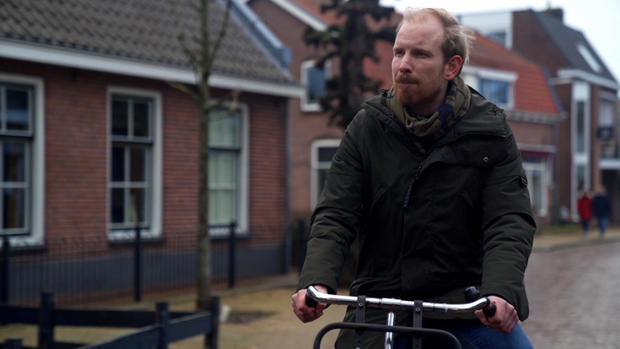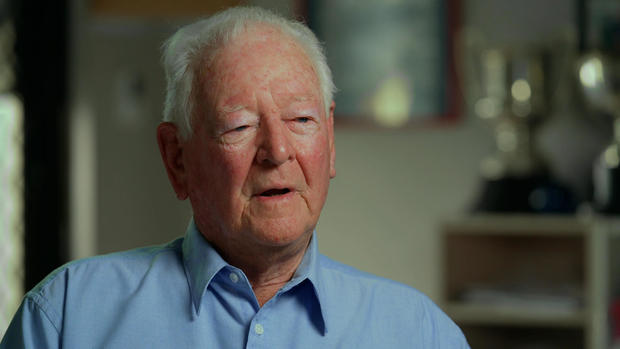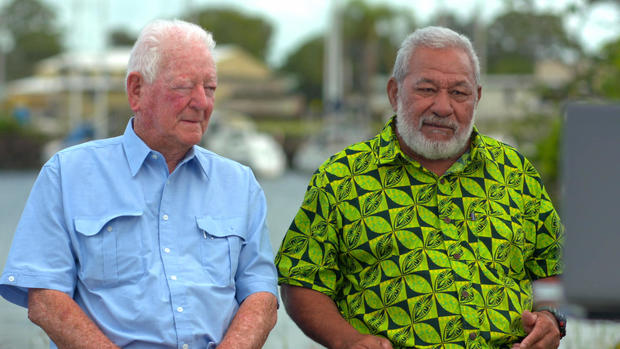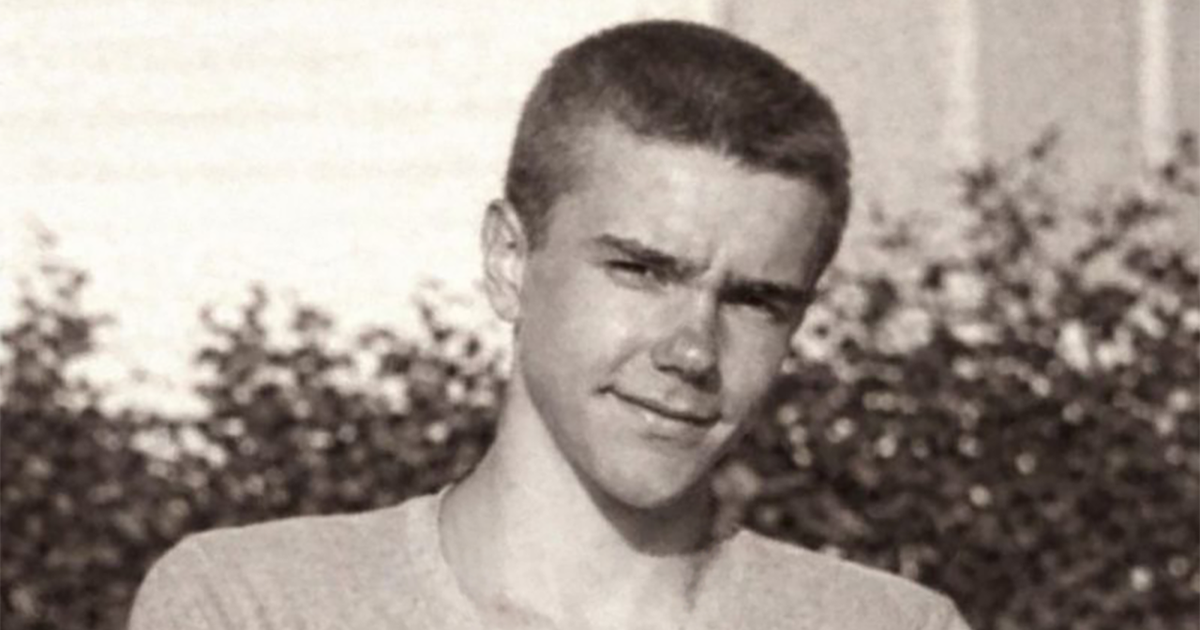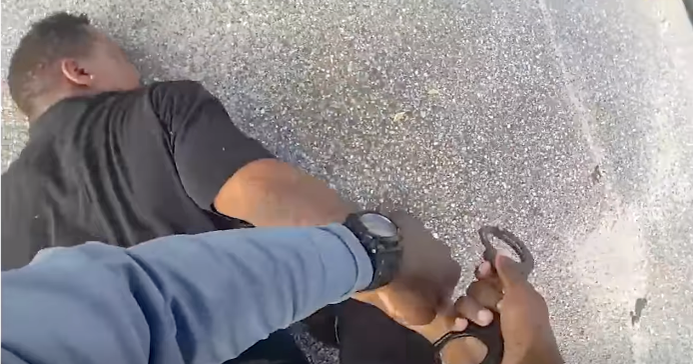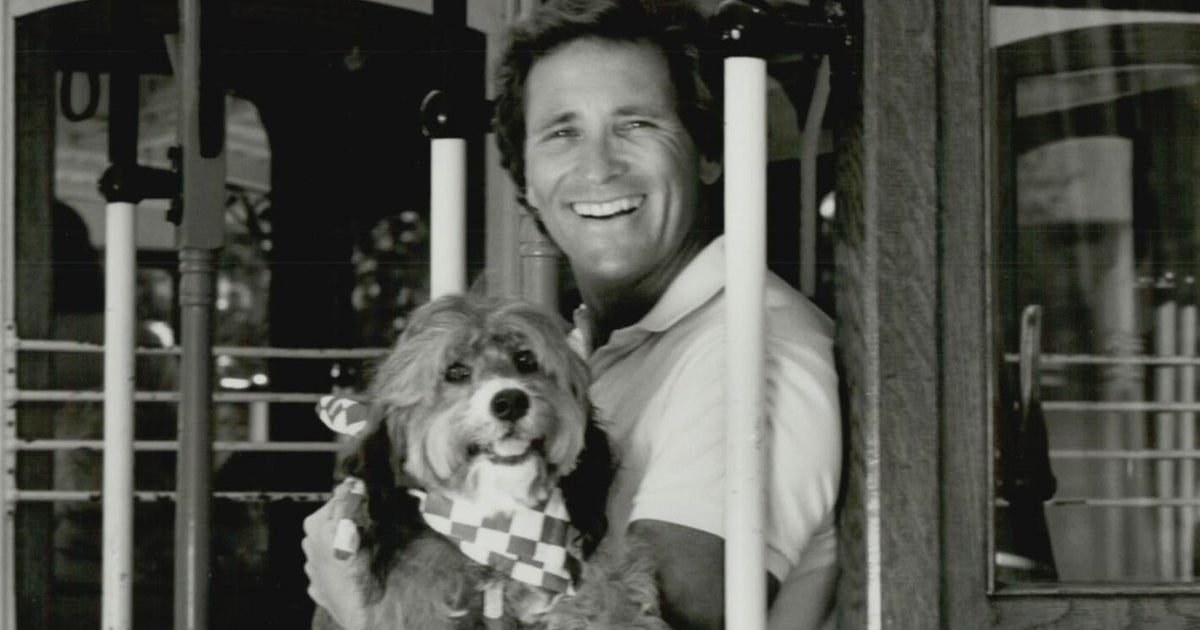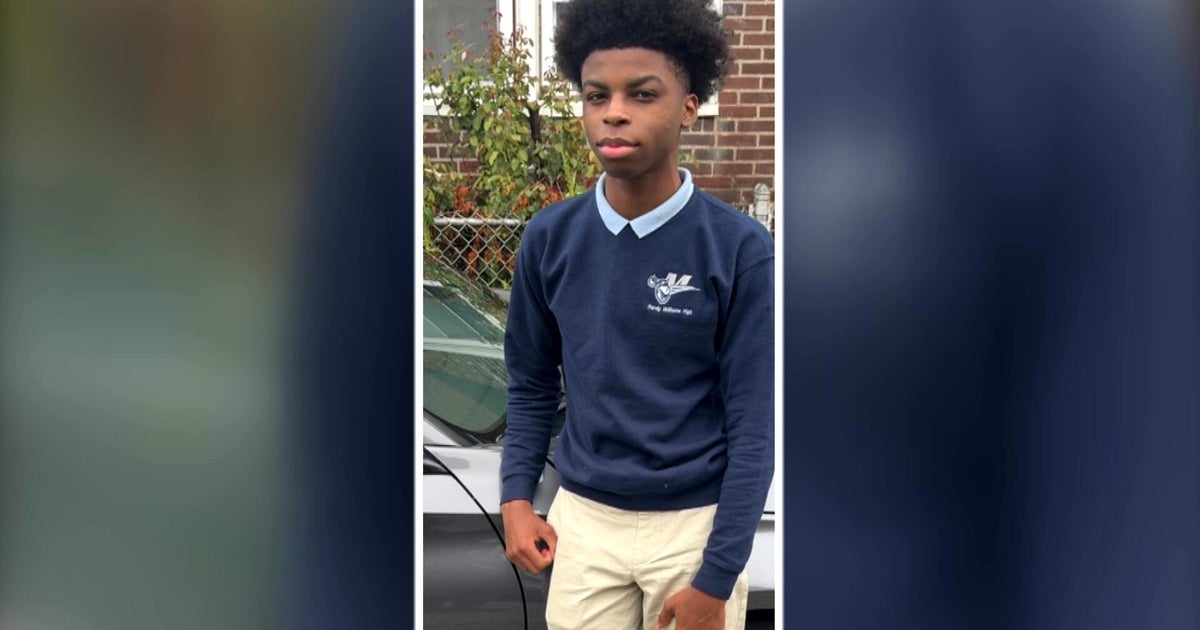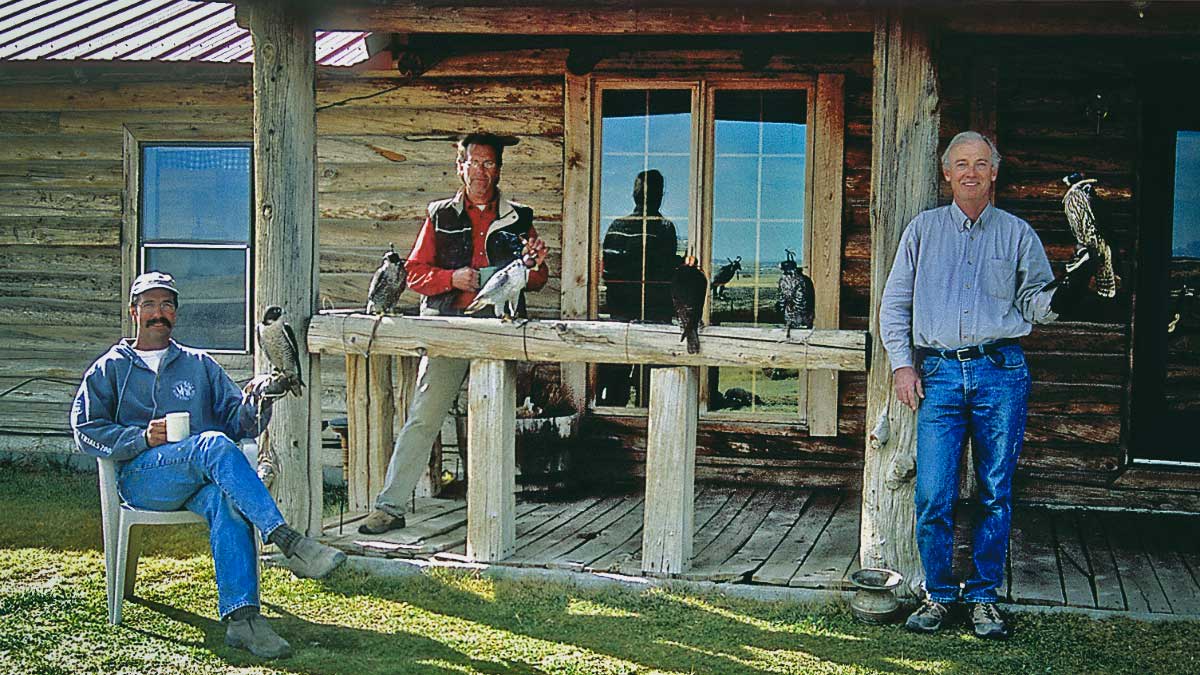A real life Lord of the Flies: The 50-year-old story of a group of teens stranded on an island
Tonight, we have a story of solidarity, hope and ultimately survival in the face of adversity. It took place more than fifty years ago, but when it was rediscovered last year it caused a sensation. As we first told you earlier this year, it's a tale of a group of schoolboys stranded on a remote and deserted island for more than 15 months. It might remind you of the famous novel -- Lord of the Flies, by William Golding -- but as you'll see, the outcome of this real-life story could not have been more different.
The story begins in 1965. Mano Totau and five of his friends were studying at a boarding school in Tonga, an island nation in the Pacific Ocean. Bored, rebellious, and yearning for adventure—they stole a traditional whaling boat—and with reckless abandon they set off for Fiji.
Holly Williams: Did it have an engine?
Mano Totau: No, no engine.
Holly Williams: But Mano, isn't Fiji about 500 miles from Tonga?
Mano Totau: A little bit less.
Holly Williams: Did you have a map or a compass?
Mano Totau: No. (LAUGH)
The teenagers might have been brought up on the sea, but they soon figured out they'd made a terrible mistake. On the first night a violent storm ripped the sails from the mast and tore off the boat's rudder.
For over a week their crippled boat drifted aimlessly. 17-year-old Sione Fataua, the oldest of the group, told us they were convinced they'd die.
Sione Fataua: No food, no water. We was just drifting around by the wind. And after eight days we saw the island.
It was a volcanic island, jutting out from the sea. As the boat neared, a wave sent it crashing into the rocky shoreline, leaving it in pieces. The exhausted teenagers struggled ashore.
Mano Totau: The only thing we do, grabbing each other together and say a prayer, "thank you, God."
The schoolboys later discovered they'd drifted a hundred miles from where they'd set off and had landed on the island of 'Ata—on maps, nothing more than an uninhabited speck.
It was a story so remarkable that later an Australian television crew brought the teenagers back to 'Ata to re-enact their experience. In the film, Sione, Mano and their friends show how they survived.
"The Castaways" film: They were able to salvage an oar and a piece of wire, and with this they set out to catch what they hoped would be their first meal in 8 days.
They demonstrate how they ate the fish they caught raw and quenched their thirst by raiding the nests of seabirds—drinking their blood and their raw eggs.
Holly Williams: Any food, anything to drink.
Mano Totau: Any food. No matter how awful it is and how dirty it is, it's a very beautiful things to have it in that time.
When they regained enough strength, Mano and Sione told us, they climbed up to the island's forested plateau where they found a clay pot, a machete and chickens, all left behind by a small Tongan community that lived on 'Ata before being ripped from their home by slave traders a century earlier.
But they told us everything changed when they finally made fire—and began cooking hot meals.
Holly Williams: How did you stop it from going out?
Sione Fataua: I tell the guys, everybody have a duty for the fire. You have to take care of the fire and you have to say prayer for that night, and get up in the morning, it's still going.
The teenage runaways showed remarkable resourcefulness—building a hut out of palm fronds, establishing a garden with bananas and beans, and setting up a roster to keep a lookout for passing ships. They even built a badminton court and a makeshift gym. They lived in harmony—they told us—most of the time.
Holly Williams: But, come on, Mano. You were teenage boys. You must have had arguments.
Mano Totau: We did, and we disagreed.
They cooled off by walking to opposite sides of the island, Mano says, though sometimes things got out of hand.
Holly Williams: So if there was a fight, how did you stop it?
Mano Totau: You smack him or something like that, and tell him, "shut up and cool down, sit down, listen."
Holly Williams: There must have been times when you were depressed, when you thought that you would never see your families again.
Sione Fataua: It was hard. And I was-- pray God and-- and I promise him, "if you could get me back, I'll serve you, rest of my life."
For more than 50 years the real-life story of Sione, Mano and their friends was little known outside of Tonga… until Dutch historian and best-selling author Rutger Bregman stumbled across it on the internet. He flew across the world to meet Mano and made the story the cornerstone of his new book, Humankind: A Hopeful History.
Rutger Bregman: And I just couldn't understand how this had not become, you know, one of the most famous stories of the 20th Century. I just couldn't understand it, because it's just extraordinary, six kids on an island for 15 months. And they survived, how?
Like millions of others, Bregman had read the fictional tale of marooned schoolboys, Lord of the Flies, which for generations has been taught in high schools around the world.
The novel—later made into a film—is a nightmarish account of a group of British boys stranded on an uninhabited island. They divide into two competing tribes and descend into violence—culminating in mayhem and murder.
Rutger Bregman: This is really old theory in Western culture, that our civilization is just a thin veneer, just a thin layer. And that when something bad happens—say there is a natural disaster or you shipwreck on an island and you have the freedom to establish your own society—that people reveal who they really are. You know, people deep down are just selfish.
Holly Williams: And you're saying that basic idea, underlying the novel, Lord of the Flies, is wrong? You're saying that would never happen?
Rutger Bregman: Well, if tens of millions of children around the globe still have to read Lord of the Flies in school today, I think they also deserve to know about this one time in all of world history when real kids shipwrecked on a real island, because that's a very different story.
A story of cooperation, hope and eventually salvation. In September 1966 after 15 long months, Australian lobster fisherman Peter Warner was sailing near 'Ata when he spotted a burned-out patch. When he went closer, he was shocked to see a human figure.
Peter Warner: And this first figure was swimming towards us doing the Australian crawl, as I call it. And then another five bodies leapt off the cliff and into the water and followed him.
They clambered aboard and told the crew how they'd run away from boarding school and ended up shipwrecked. Peter radioed to Nuku'alofa, the capital of Tonga, to check out their story.
Peter Warner: And the operator very tearfully said, "it's true. These boys were students at this college. They've been given up for dead. Funerals have been held. And now you've found them." So, that was a very emotional moment for all of us.
Holly Williams: So you knew you were going home.
Mano Totau: Yes
Holly Williams: How did that feel?
Mano Totau: Like walking through the door to heaven.
But heaven would have to wait—when they arrived back in port they were immediately arrested.
Holly Williams: So Peter Warner rescued you and took you back to Nukuʻalofa where everyone thought that you were dead. And then you were arrested?
Sione Fataua: Yeah. We are arrested because we stole the boat. (LAUGH)
Peter Warner told us he paid off the owner of the stolen boat—and finally sailed the runaway schoolboys back to their home island, accompanied by the Australian television crew that had flown in to film their story. They captured the teenagers' reunion with their families.
"The Castaways" film: Our boys have come back...
Sione Fataua: My mom, she was swimming out before I get out the boat. I'm the first one going to the beach, and give me a hug.
"The Castaways" film: Never had there been such joy...
Peter Warner: The whole population of this little island were on the beach, hugging the boys. Parents were crying. Then the party started. Six days of feasting.
The story has never been forgotten in these islands but when a British newspaper published a chapter of Rutger Bregman's book last May, the tale of the Tongan teenagers went viral—7 million people read it within days. Hollywood studios got into a bidding war for the film rights.
Holly Williams: Why were so many people all around the world surprised and captivated by your telling of the story?
Rutger Bregman: Maybe we needed to hear it? Maybe especially right now, in the midst of a pandemic? Is that people were looking for a story that gave them hope about a different way of living together, that a different society is possible. That it's not just violence and selfishness and greed within human nature, but that we can build on something different. Maybe that's why.
It's been 55 years since the shipwrecked schoolboys were rescued. They've never had any doubt how or why they survived.
Sione Fataua: I think the culture where we come from. We are close. Really close family. We share everything. We poor, but we love each other.
The teenagers had no interest in going back to the classroom, at first they worked for Peter Warner, who set up a fishing business in Tonga. Sione, as promised, later became a minister—he's now the head of the Church of Tonga in America. Mano trained as a chef and moved to Australia. For half a century, he and Peter Warner have been best friends—whenever they can they go out for a sail—forever pulled back to the Pacific Ocean where their friendship began.
Holly Williams: Why do you guys get along so well, you know, all these years after the rescue?
Mano Totau: I think that we feel strongly in us that we have something to helping one another.
Peter Warner: Yeah, and also--
Mano Totau: Teaching one another on it.
Peter Warner: And also, we have a common beliefs that got you through that trial on the island, you know, love, compassion and…
Mano Totau: Yeah.
Peter Warner: Justice, unity.
Mano Totau: We both believe in the same thing.
The teenagers composed a song when they were on the island of 'Ata—Siosionoa—seeing nothing every day. It takes Mano back to a time when they were longing for home, and before they could ever imagine that their story might have lessons for us all.
Produced by Michael H. Gavshon. Associate producer, Nadim Roberts. Broadcast associate, Annabelle Hanflig. Edited by Daniel J. Glucksman.

